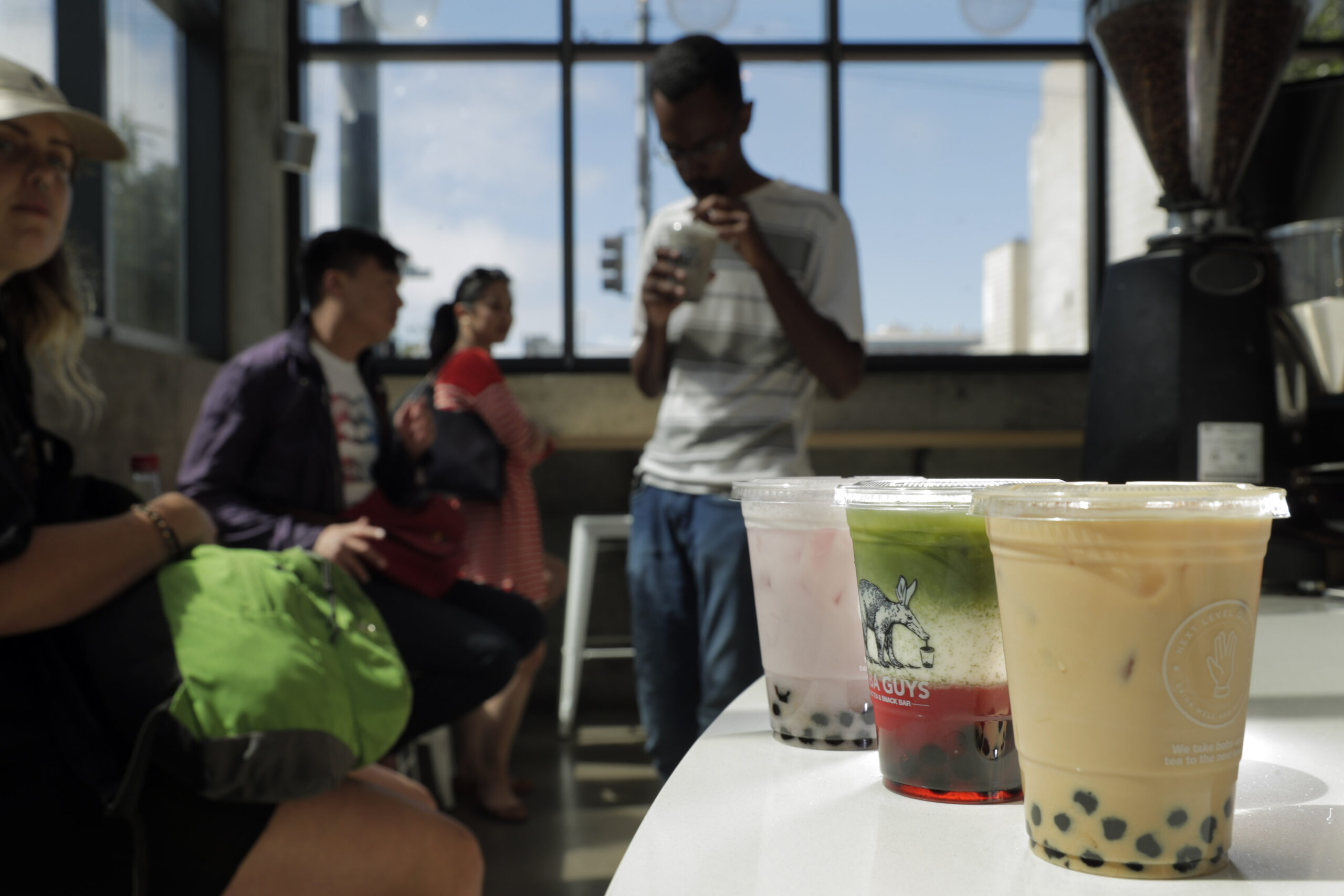A single black tea with tapioca pearls from Boba Guys contains more BPA than a person can safely consume in a year, according to a new report on Bay Area food products.
The findings, published in a report titled PlasticList, come from researchers led by former GitHub CEO Nat Friedman.
“We were, like many others, asking ourselves if plastic chemicals would turn out to be the next public health crisis for humanity to overcome,” the report says. “We realized it was important to try and get closer to the true answer.”
The team tested 300 popular Bay Area foods, including some “bougie favorites” from local cafés and regional chains. The results, though limited and presented by the authors as just “a starting point” for further research, showed these chemicals are everywhere.
A vast majority (86%) of the 775 samples from 312 foods contained an alphabet soup of plastic chemicals: BPA, DEHT, DEHP, DBP, and others. These compounds have proved harmful to animals in lab tests, are known to disrupt hormones in people, and are seemingly unavoidable for anybody who shops at grocery stores and eats at restaurants.
The study also suggests that chemicals from plastic takeout containers leach into food, and the longer the food stays in the containers, the more chemicals it absorbs.
Boba Guys tea had the most BPA — bisphenol A, an industrial chemical used to harden plastics — of any tested item.
In a statement to The Standard, the bubble tea company cast doubt on the study’s findings and said it’s looking into the possibility that the contaminants are from tap water in Palo Alto, where all tested samples came from.
“The tap water sample yielded the second highest BPA level and we suspect the two could be related,” the statement said. “We will be conducting our own study with a third-party laboratory and we will share the results.”
The company added that its equipment and ingredients are “in line with the industry standards to our peers in the cafe world.”
Products from Blue Bottle Coffee, Salt & Straw, Tartine, and the Stanford University dining hall also contained startling levels of plastic compounds, as did food from California chains like In-N-Out and Sweetgreen.
Salmon and steak from Whole Foods had more plastic chemicals than most fast-food burgers, the study found. Even baby food, infant formula, and breast milk from a hospital had harmful chemicals in them.
But almost none of the tested products violated U.S.Food and Drug Administration or European Food Safety Authority regulations.
“So the question of plastic chemical safety in food comes down largely to whether you believe those organizations have set intake limits correctly,” the report notes.
None of the above-mentioned companies or institutions responded to requests for comment.
